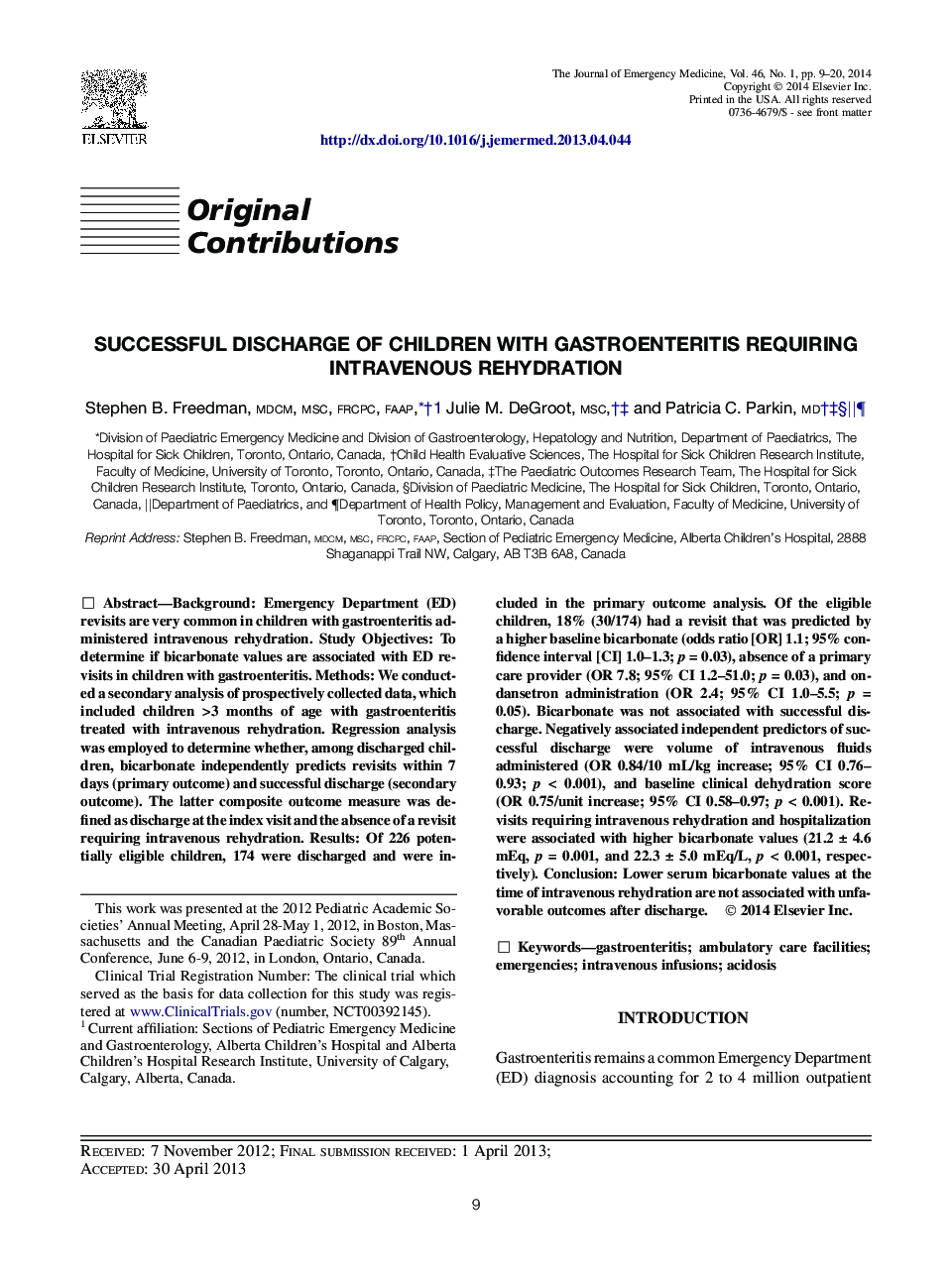| کد مقاله | کد نشریه | سال انتشار | مقاله انگلیسی | نسخه تمام متن |
|---|---|---|---|---|
| 3246613 | 1589141 | 2014 | 12 صفحه PDF | دانلود رایگان |
BackgroundEmergency Department (ED) revisits are very common in children with gastroenteritis administered intravenous rehydration.Study ObjectivesTo determine if bicarbonate values are associated with ED revisits in children with gastroenteritis.MethodsWe conducted a secondary analysis of prospectively collected data, which included children >3 months of age with gastroenteritis treated with intravenous rehydration. Regression analysis was employed to determine whether, among discharged children, bicarbonate independently predicts revisits within 7 days (primary outcome) and successful discharge (secondary outcome). The latter composite outcome measure was defined as discharge at the index visit and the absence of a revisit requiring intravenous rehydration.ResultsOf 226 potentially eligible children, 174 were discharged and were included in the primary outcome analysis. Of the eligible children, 18% (30/174) had a revisit that was predicted by a higher baseline bicarbonate (odds ratio [OR] 1.1; 95% confidence interval [CI] 1.0–1.3; p = 0.03), absence of a primary care provider (OR 7.8; 95% CI 1.2–51.0; p = 0.03), and ondansetron administration (OR 2.4; 95% CI 1.0–5.5; p = 0.05). Bicarbonate was not associated with successful discharge. Negatively associated independent predictors of successful discharge were volume of intravenous fluids administered (OR 0.84/10 mL/kg increase; 95% CI 0.76–0.93; p < 0.001), and baseline clinical dehydration score (OR 0.75/unit increase; 95% CI 0.58–0.97; p < 0.001). Revisits requiring intravenous rehydration and hospitalization were associated with higher bicarbonate values (21.2 ± 4.6 mEq, p = 0.001, and 22.3 ± 5.0 mEq/L, p < 0.001, respectively).ConclusionLower serum bicarbonate values at the time of intravenous rehydration are not associated with unfavorable outcomes after discharge.
Journal: The Journal of Emergency Medicine - Volume 46, Issue 1, January 2014, Pages 9–20
